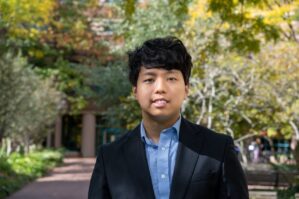 Over the summer, I had the opportunity to delve into an independent research project, examining the academic divide between native and immigrant students in Finland’s education system. This venture, part of the 2023 Wharton Social Impact Research Experience (SIRE), allowed me to explore a topic that resonates deeply with my interests in education and social equity.
Over the summer, I had the opportunity to delve into an independent research project, examining the academic divide between native and immigrant students in Finland’s education system. This venture, part of the 2023 Wharton Social Impact Research Experience (SIRE), allowed me to explore a topic that resonates deeply with my interests in education and social equity.
Finland’s education system is often lauded as a global exemplar, noted for its innovative approaches and high academic achievements. However, beneath this veneer of excellence lies a stark divide. My research aimed to dissect this discrepancy, focusing on the performance gap in the 2018 Programme for International Student Assessment (PISA) results.
My journey involved analyzing PISA data, unraveling complex layers of socio-economic, cultural, and educational factors. The disparity in academic performance, particularly in reading, was not just a statistic; it represented the lived experiences of thousands of students. This realization drove me to delve deeper, seeking to understand the root causes of these inequalities. A significant part of my research involved understanding the historical and cultural context of Finland’s education system. The nation’s shift from a bifurcated educational model to a comprehensive one aimed at inclusivity and equity in the 1970s was instrumental in shaping the current educational landscape. But the integration of a growing immigrant population posed new challenges, particularly in addressing their unique educational needs.
One of the most striking findings was the impact of digital resources on academic performance. The digital divide, marked by limited internet and computer access at home for immigrant families, emerged as a critical factor influencing academic outcomes. Furthermore, parental education, especially paternal, showed a significant correlation with student performance. These insights highlighted the complex interplay of socio-economic, cultural, and familial factors in educational achievement.
My experience was not just an academic endeavor but a journey of personal growth. Working under the guidance of faculty advisors, librarians, and subject-matter experts provided me with invaluable insights into the real-world implications of educational policies. It emphasized the importance of holistic approaches in addressing educational disparities.
As Finland continues to navigate its multicultural landscape, the findings from my work illuminate pathways for policy interventions. These could include initiatives to bridge the digital divide, tailored vocational training programs for immigrant parents, and fostering resilience and determination in students, particularly those from immigrant backgrounds.


